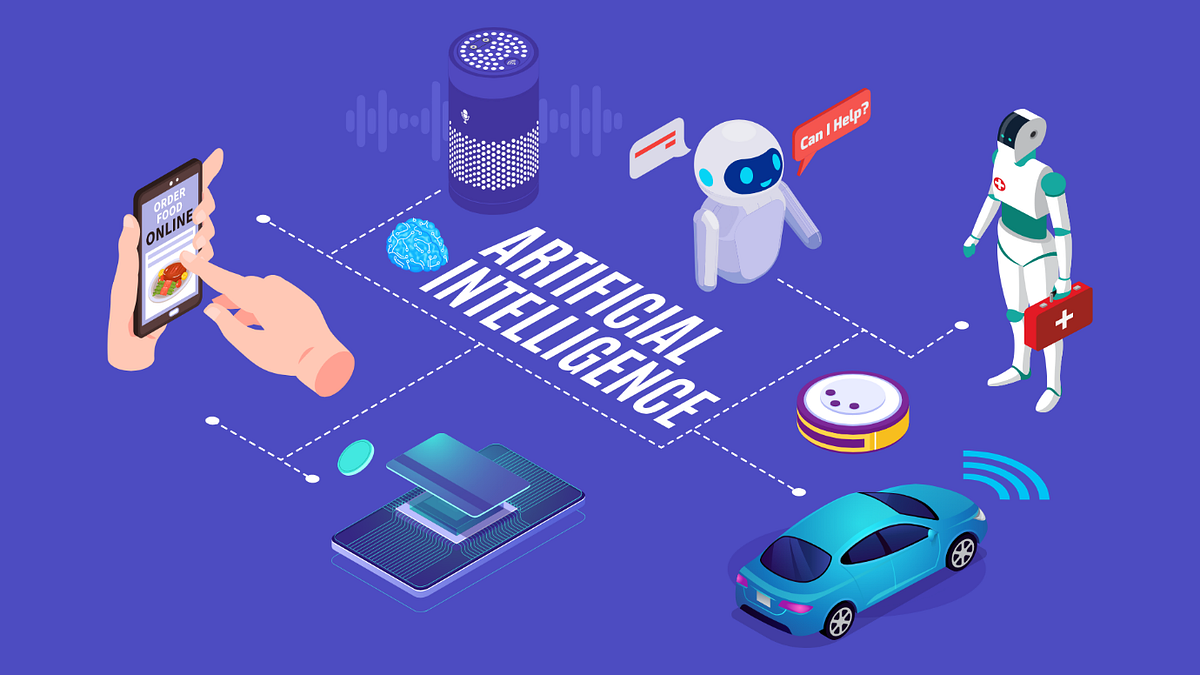Artificial Intelligence (AI) has become an integral part of our lives, transforming how we approach and handle everyday activities. From helping us organize our schedules to making our homes smarter, AI is more than just a buzzword—it’s a practical tool that simplifies life. This blog explores how AI is revolutionizing daily tasks, its current applications, and the potential it holds for the future.
Understanding AI in Everyday Life
Before diving into specifics, it’s essential to understand what AI truly is. At its core, AI refers to machines and systems designed to mimic human intelligence. These systems can learn, adapt, and make decisions based on data, making them invaluable in countless scenarios.
Today, AI isn’t confined to laboratories or futuristic movies. It’s in the apps we use, the gadgets we carry, and even the cars we drive. From virtual assistants like Siri to personalized recommendations on Netflix, AI has seamlessly integrated into our lives, often without us realizing it.
Simplifying Household Chores with AI
AI is redefining how we manage our homes, taking the drudgery out of everyday chores.
- Smart Appliances: AI-powered devices like robotic vacuum cleaners (e.g., Roomba) and smart refrigerators are game-changers. They learn your preferences, automate tasks, and even alert you when maintenance is needed.
- Voice Assistants: Tools like Alexa and Google Assistant allow us to control home devices, set reminders, and play music—all hands-free. Want to dim the lights or adjust the thermostat? Just ask.
- Energy Management: AI-driven thermostats like Nest learn your habits to optimize energy usage, saving both time and money while reducing environmental impact.
These innovations make homes more efficient, freeing up time for activities that matter.
Transforming Work and Productivity
AI has become a productivity powerhouse, enabling individuals and businesses to work smarter, not harder.
- Virtual Assistants: AI tools like Microsoft Cortana or Google Workspace’s smart suggestions streamline tasks such as scheduling meetings and drafting emails. They’re the silent helpers boosting workplace efficiency.
- Remote Work Enhancements: AI-driven platforms like Zoom incorporate features like noise suppression and automatic transcriptions, making virtual meetings more productive.
- Creative Assistance: Whether it’s Grammarly for writing or Canva’s AI design suggestions, creative professionals now have tools to elevate their work effortlessly.
Enhancing Personal Health and Fitness
AI’s impact extends to personal health and wellness, encouraging healthier lifestyles.
- Health Monitoring: Wearable devices like Fitbit or Apple Watch track metrics such as heart rate, sleep patterns, and physical activity. These insights help users make informed health decisions.
- Fitness Apps: Platforms like MyFitnessPal and AI-enabled fitness equipment like Peloton offer personalized workout plans and track progress to keep users motivated.
- Mental Health: AI-powered apps such as Woebot or Calm provide guided meditation, stress relief exercises, and even mental health support through chatbots.
Revolutionizing Travel and Commuting
AI is making travel and commuting more seamless than ever.
- Navigation Tools: Apps like Google Maps use AI to provide real-time traffic updates, optimize routes, and predict travel times.
- Ride-Sharing Services: Companies like Uber and Lyft leverage AI for dynamic pricing, route optimization, and improving user experiences.
- Autonomous Vehicles: AI is the backbone of self-driving cars, offering features like adaptive cruise control, lane assistance, and collision avoidance, paving the way for a safer future.
Shopping Made Smarter
The shopping experience has been transformed by AI, making it more convenient and personalized.
- Personalized Recommendations: Whether it’s Amazon’s product suggestions or Spotify’s curated playlists, AI understands individual preferences to enhance user satisfaction.
- Smart Checkout Systems: Stores like Amazon Go use AI for cashier-less shopping, where customers can simply walk in, pick items, and walk out—no checkout lines required.
- Automated Reordering: AI-enabled systems can remind you to reorder essentials or even automate purchases based on usage patterns.
Learning and Entertainment with AI
AI isn’t just practical; it’s also a source of fun and learning.
- Educational Platforms: Tools like Duolingo and Khan Academy use AI to adapt lessons to each learner’s pace and style, making education accessible and engaging.
- Gaming: AI enhances gaming experiences by creating realistic environments, adaptive challenges, and smarter in-game opponents.
- Content Recommendations: Streaming platforms like Netflix and YouTube rely on AI algorithms to suggest shows and videos tailored to individual tastes, ensuring users always find something they’ll enjoy.
Addressing Concerns About AI in Daily Life
While AI offers immense benefits, it’s crucial to address potential concerns.
- Privacy Issues: Many AI systems rely on personal data, raising questions about security and misuse. It’s essential to understand how companies handle your information.
- Ethical Challenges: AI can inadvertently reflect biases present in the data it’s trained on. Ensuring fairness and inclusivity in AI systems is an ongoing effort.
- Job Displacement: Automation may replace certain jobs, but it also creates opportunities in emerging fields, emphasizing the need for reskilling and adaptability.
The Future of AI in Everyday Tasks
The journey of AI has just begun, with endless possibilities on the horizon.
- Emotion Recognition: AI systems are being developed to understand and respond to human emotions, enabling more empathetic interactions.
- Hyper-Personalization: Imagine devices that not only adapt to your needs but anticipate them before you even express them.
- Quantum AI: The integration of quantum computing could exponentially boost AI’s capabilities, solving complex problems that were once thought impossible.
As AI continues to evolve, its role in enhancing our daily lives will only grow, offering smarter, faster, and more intuitive solutions.
Conclusion
AI is no longer a futuristic concept; it’s a transformative force reshaping how we live, work, and play. From simplifying household chores to revolutionizing how we shop, travel, and stay healthy, its impact is undeniable. By embracing AI’s potential while addressing its challenges, we can harness this technology to create a more efficient, enjoyable, and sustainable future.







